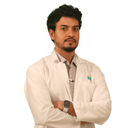How Hernias Develop and Occur
Learn how hernias develop, their common types, symptoms, and treatment options. Discover what causes hernias, how to manage them, and when to seek medical help. Stay informed to prevent complications and protect your health.

Written by Dr. Dhankecha Mayank Dineshbhai
Reviewed by Dr. Shaik Abdul Kalam MD (Physician)
Last updated on 7th Aug, 2025

A hernia is a common health condition that occurs when an organ or tissue pushes through a weak spot in the surrounding muscle or connective tissue. While hernias can develop in different parts of the body, they are most commonly found in the abdomen. If you or someone you know is dealing with a hernia, it’s important to understand how they develop, their symptoms, and what can be done to manage or treat them.
What Is a Hernia?
A hernia happens when an internal organ (such as the intestine) bulges out through a weak area in the muscle or tissue that normally holds it in place. Think of it like a tire with a weak spot when pressure builds up, the inner tube pushes through the damaged area.
Hernias can vary in size and severity. Some cause mild discomfort, while others may lead to serious complications if left untreated.
Common Types of Hernias
1. Inguinal Hernia – The most common type, occurring in the groin area, more frequently in men.
2. Femoral Hernia – Less common, found in the upper thigh, mostly in women.
3. Umbilical Hernia – Occurs near the belly button, often seen in babies but can also affect adults.
4. Hiatal Hernia – Develops when part of the stomach pushes up into the chest through the diaphragm.
5. Incisional Hernia – Can form at the site of a previous surgical incision.
How Do Hernias Develop?
Hernias develop due to a combination of muscle weakness and increased pressure. Here’s how it happens:
1. Muscle Weakness
Muscles and tissues can weaken due to:
- Aging – Natural wear and tear over time.
- Congenital (Birth) Defects – Some people are born with weaker abdominal walls.
- Surgery or Injury – Previous surgeries (like C-sections or appendectomies) can leave weak spots.
- Chronic Conditions – Diseases like diabetes or obesity can weaken muscles.
2. Increased Pressure
When pressure builds up inside the body, it can push organs through weak spots. Common causes include:
- Heavy Lifting – Straining while lifting weights or heavy objects.
- Chronic Coughing or Sneezing – Conditions like asthma or smoking-related cough.
- Pregnancy – Extra pressure on the abdomen.
- Constipation or Straining – Difficulty passing stool increases abdominal pressure.
- Fluid in the Abdomen (Ascites) – Often linked to liver disease.
Symptoms of a Hernia
Not all hernias cause symptoms, but common signs include:
- A noticeable bulge or lump (may disappear when lying down).
- Pain or discomfort, especially when bending, coughing, or lifting.
- A feeling of heaviness or pressure in the affected area.
- Heartburn or difficulty swallowing (in hiatal hernias).
When to Seek Immediate Help:
If the hernia becomes strangulated (trapped and cutting off blood supply), symptoms may include:
- Severe pain, nausea, vomiting.
- Redness or darkening of the bulge.
- Inability to push the hernia back in.
This is a medical emergency—seek help right away!
Consult Top Doctors
How Are Hernias Diagnosed?
Doctors usually diagnose hernias through:
- Physical Examination – Checking for bulges when you stand or cough.
- Imaging Tests – Ultrasound, CT scan, or MRI for confirmation.
- Endoscopy – For hiatal hernias, a small camera checks the stomach and esophagus.
Treatment Options
1. Watchful Waiting (For Small, Asymptomatic Hernias)
- If the hernia isn’t causing problems, doctors may monitor it.
- Lifestyle changes can help prevent worsening.
2. Surgery (For Painful or Growing Hernias)
- Open Surgery – The surgeon repairs the weak spot with stitches or mesh.
- Laparoscopic (Minimally Invasive) Surgery – Smaller incisions, faster recovery.
3. Lifestyle & Home Remedies
- Avoid Heavy Lifting – Use proper techniques if necessary.
- Maintain a Healthy Weight – Reduces pressure on the abdomen.
- Eat Fiber-Rich Foods – Prevents constipation and straining.
- Quit Smoking – Reduces chronic coughing.
- Wear a Supportive Truss (Temporary Solution) – Helps hold the hernia in place.
Can Hernias Be Prevented?
While not all hernias can be prevented, you can reduce your risk by:
- Strengthening core muscles with safe exercises.
- Avoiding sudden heavy lifting.
- Treating chronic coughs or constipation early.
- Eating a balanced diet to maintain a healthy weight.
When to See a Doctor
If you notice a bulge, discomfort, or any worsening symptoms, consult a doctor. Early treatment prevents complications.
Need Expert Advice?
If you suspect a hernia or need guidance, you can book a consultation with a specialist through Apollo 24|7. Early diagnosis and care make a big difference!
Conclusion
Hernias are common but manageable. Understanding how they develop helps in prevention and timely treatment. If you experience symptoms, don’t ignore them—seek medical advice to stay healthy and pain-free.
Consult Top Doctors
Consult Top Doctors

Dr. Suvadeep Sen
Critical Care Specialist
12 Years • MBBS, MD, FNB (CRITICAL CARE MEDICINE), EDIC
Mumbai
Apollo Hospitals CBD Belapur, Mumbai

Dr. Tanmaya Kumar Sahu
General Physician/ Internal Medicine Specialist
12 Years • MBBS, MD ( Internal Medicine )
Bhubaneswar
Apollo Hospitals Old Sainik School Road, Bhubaneswar

Dr. Swati Hanmanthappa
General Physician/ Internal Medicine Specialist
2 Years • MBBS
Bengaluru
Apollo Clinic, Electronic City, Bengaluru

Dr S Lakshmi Narasimha Reddy
General Practitioner
9 Years • MBBS
Kondapur
Singam's Kids Clinic, Kondapur
Dr. Lt Col Rakesh Bhatia
General Practitioner
22 Years • MBBS
GAUTAM BUDH NAGAR
SEHAT CLINIC, GAUTAM BUDH NAGAR
Consult Top Doctors

Dr. Suvadeep Sen
Critical Care Specialist
12 Years • MBBS, MD, FNB (CRITICAL CARE MEDICINE), EDIC
Mumbai
Apollo Hospitals CBD Belapur, Mumbai

Dr. Tanmaya Kumar Sahu
General Physician/ Internal Medicine Specialist
12 Years • MBBS, MD ( Internal Medicine )
Bhubaneswar
Apollo Hospitals Old Sainik School Road, Bhubaneswar

Dr. Swati Hanmanthappa
General Physician/ Internal Medicine Specialist
2 Years • MBBS
Bengaluru
Apollo Clinic, Electronic City, Bengaluru

Dr S Lakshmi Narasimha Reddy
General Practitioner
9 Years • MBBS
Kondapur
Singam's Kids Clinic, Kondapur
Dr. Lt Col Rakesh Bhatia
General Practitioner
22 Years • MBBS
GAUTAM BUDH NAGAR
SEHAT CLINIC, GAUTAM BUDH NAGAR

